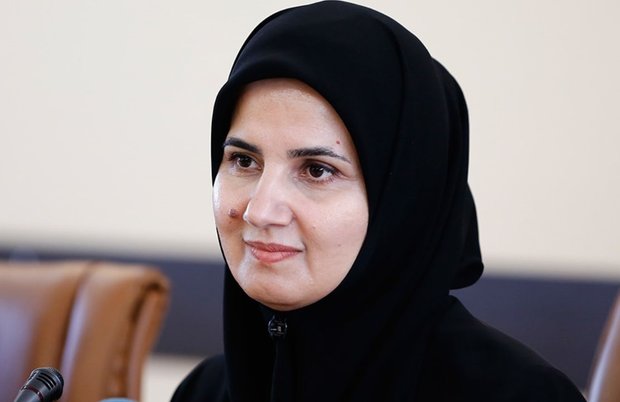Talking to reporters on Sunday about the FATF’s recent decision to continue the suspension of countermeasures against Iran, Vice President for Legal Affairs Laya Joneydi voiced concern over the watchdog’s announcement of taking further countermeasures in the future should Iran decide not to enact the bills on Palermo and Terrorist Financing Conventions.
“Unfortunately, step by step we are returning to the starting point; that is, a stop to the suspension and the return of counter-measures. We can’t let that happen,” she stressed.
On June 21, the Financial Action Task Force (FATF) announced its decision to continue the suspension of counter-measures against Iran, noting the country’s progress of legislative, anti-money laundering efforts. The financial watchdog went on to note, however, that “if by October 2019, Iran does not enact the Palermo and Terrorist Financing Conventions in line with the FATF Standards, then the FATF will require introducing enhanced relevant reporting mechanisms or systematic reporting of financial transactions; and increased external audit requirements for financial groups with respect to any of their branches and subsidiaries located in Iran.”
Joneydi went on to add, “It is expected that the Expediency Council expedite the finalization of the two bills in order to prevent further countermeasures. It would have been better if the problem had been solved sooner so that our international banking relations wouldn’t have taken more damage.”
She said the four-month ‘suspension’ is only true in its literal sense, whereas three countermeasures against Iran have been either returned or are in the process of returning.
She maintained that any more delay would render further periods of suspension ineffective for Iran, as it would cause foreign banks to treat doing business with Iran as if dealing with a country already on the FATF’s blacklist.
Voices inside Iran are divided on the ratification of the two remaining controversial bills. While the Parliament and the Rouhani administration have been more or less in favor of joining the FATF by ratifying the CFT and Palermo bills, the Guardian Council and Expediency Council have their own concerns.
A member of the Expediency Council, Hossein Mozaffar, said that “the kind of transparency that FATF seeks in the Palermo bill is to find out our ways for bypassing sanctions. For a country under sanctions, it is a very unwise move to show our hands and let them see and block all our strategies.”
He also said that those in favor of joining the FATF had failed to come up with a strong argument as to why joining the body would be economically beneficial to Iran.
According to him, the final verdict will be cast on the two bills before the FATF’s June deadline runs out.
MS/IRN83365285


























Your Comment